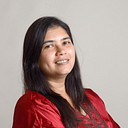A Retreat to the Heart of Nature in West Virginia
Sometimes, life has a way of leading us to places that make us feel both small and incredibly alive. Right now, I’m sitting at a breathtaking vantage point on the border of West Virginia and Maryland, on a sprawling 500-acre farm owned by my friend Catherine’s family. Her father, a man of remarkable foresight, bought this land in 1968, believing that “land is land, and it is yours forever.” Looking out over miles of untouched greenery, I feel this in my bones — a timeless connection to nature and to the generations that will enjoy this serene escape.
Catherine’s mother, Susan, a pioneer journalist, added her own touch to the cabin by insisting on picture windows that perfectly frame the spectacular landscape, bringing the outdoors inside. Her choice was a gift that now offers an endless sense of calm, connecting us to nature’s beauty, even from the cozy interior.
As the sun began to dip, we took a walk through the property, discovering its hidden treasures. A large pond shimmered in the fading light, tempting us to wade in, though the brisk chill kept us at bay. Cows grazed nearby, eyeing us with gentle curiosity, and Rodney, Catherine’s lively dog, dashed around with unabashed joy, chasing after insects and rolling in the grass, embodying pure, unfettered freedom. The barn, stacked high with hay, looked like something out of a film, lending an old-world charm to this quiet haven.
The cabin itself, perched atop the mountain, is filled with artifacts that each tell a story. In the hallway, a snakeskin hangs as a silent testament to the wilderness surrounding us, while a picture of the battleship Oregon, with a border painted in red and blue by Susan, adds a distinctly American touch. The spacious bathroom, with its luxurious tub and Independence-themed decor, even has an antique 46-star flag — an homage to America’s past.
The walls are adorned with personal family mementos, each as fascinating as the next. Nicholas’ poem, a futuristic ode to the humble light bulb, invites us to imagine this everyday object from an archaeological perspective, as if looking back from a distant future. There’s the original map of the property drawn by the real estate agent, showing “Maple Run,” one of the two streams running like ribbons through the farm, framed with the newspaper ad that initially caught Neil’s eye. The farm’s name, Wrong Way Flowing River Farm, adds yet another layer to its rich tapestry of history. Named for the Youghiogheny River, whose headwaters begin on the property, it flows in the opposite direction, a phenomenon first noted by Native Americans.
I couldn’t help but notice the whimsical Indian artifacts scattered throughout, like a wooden elephant table and the screen from a puppet show, sitting right behind me as I worked. These items, along with countless knickknacks from Susan and Neil’s lives, add an international flair and a deeply personal touch to this cabin.
Reading Catherine’s father’s account of the cabin in Architectural Digest felt like stepping back in time, seeing this land as he once envisioned it — a refuge, a place for family to gather, heal, and reconnect. His gift to his family has now become a gift to me, and I am profoundly grateful.
The magic of this place isn’t only in the scenery but also in its legacy. Here, where two Pulitzer Prize winners, Susan and Neil, poured their thoughts onto paper, I feel both inspired and reflective. Last night, as I gazed up at a star-filled sky and a faintly glowing Milky Way, I felt a profound connection to the universe — aware of my smallness in its vastness yet reminded of our collective power to impact it.
In this cabin, time slows, allowing space to reflect, work, and breathe. This day and a half has not only rejuvenated me but has also planted the seed for a future return. For now, I carry this experience as a cherished memory — a reminder of the beauty in nature, legacy, and the spaces that let us reconnect with both.
In the end, this place isn’t just a retreat; it’s a reminder of our deep connection to the land and each other, and the incredible privilege — and responsibility — we have to protect and cherish it.
